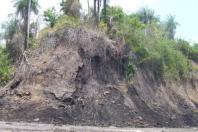Five years ago on May 1st, 2007, the Venezuelan government finished the process of nationalization of the Orinoco Oil Belt and agreements on risk exploration and shared profits to end the privatization of the Venezuelan oil industry that began in the 1990s.
This process paved the way for guaranteeing Venezuela a majority share of at least 60 percent in the creation of joint ventures to develop oil exploration, extraction and processing in this area, a total of 55,000 km2 in the states of Anzoátegui, Monagas, Guárico and Bolívar. The Orinoco Oil Belt is the site of the world’s largest oil reserves.
The process included the nationalization of 33 cooperative agreements, 11 asociation projects and all the aquatic, drilling and gas operations developed in the Orinoco Oil Belt.
Five years ago, at an event with the workers of the José Antonio Anzoátegui Industrial Complex in Anzoátegui state, President Hugo Chávez said that the nationalization put an end to oil privatization under previous governments, which offered transnational companies the possibility to control operations in the Oil Belt.
Since 1987, oil exploration had been developed by foreign consortiums like the U.S. firms Exxon Mobil, Neron, Dupont Conoco, Amoco, LL&E and Benton, British Petroleum and Spain’s Repsol. Under this scheme, the country saw oil revenues of just $23.4 billion over ten years.
“The oil opening was nothing less than an attempt to definitively take the largest and most powerful natural wealth away from Venezuelans, the attempt by imperialism to take over the world’s largest oil reserves forever,” Chávez said.
Nationalization Process
On February 26, 2007, the executive branch of the government announced a law to migrate old agreements to joint companies and association agreements of the Orinoco Oil Belt, as well as agreements on risk exploration and shared profits.
With the development of the policy of oil sovereignty, it was possible to readjust and reorganize the collection of royalties and taxes from the hydrocarbon sector.
“We guaranteed that the country would have fair profits like other nations of the world, by increasing the royalty rate from 1 percent to 33 percent. Previously, for each 100 produced oil barrels, they [the transnational companies] would take 99 [percent] and the Venezuelan people would take 1. This figure became the lowest rate ever paid in the world for oil exploration,” said Oil Minister Rafael Ramírez.
Ramírez explained that oil revenue taxes were also adjusted from 34 to 50 percent and an extraction tax of 33 percent was established, as well as taxes for export registration of 0.1 percent, a superficial tax equivalent to $2,000 per square kilometer or a fraction of the superficial area given for exploration activities.
Between 2001 and 2011, the amount of oil taxes collected reached $356.76 billion, compared to $23.4 billion in the previous decade.
Certification of Reserves
The Orinoco Oil Belt was considered by the old PDVSA board members as a source of bitumen, a semi solid, highly viscous hydrocarbon commercialized in international markets at the prices of carbon (a quarter of the value of oil).
Nevertheless, when Project Magna Reserva was implemented in 2005, it was possible to certify and quantify the oil reserves in the belt, which currently reach 297.57 billion barrels, the largest on the planet.
“Now we can take advantage of these reserves according to the nation’s development plans and not any transnational plan. Over $354 billion has been collected in oil revenues for the benefit of all Venezuelans, which would otherwise be taken away by transnational companies,” Ramírez said.
Ramírez, who is also president of PDVSA, the state oil company, said that between 2001 and 2011, the company allocated $123.4 billion for the development of social programs, while investments in this area up to 1999 totaled $30 billion.
In 2011 alone, PDVSA allocated over $30 billion to finance social projects.
Additionally, last year, PDVSA’s contributions to the Great Housing Mission reached $4 billion, while funds allocated for social projects and the National Fund for Development (FONDEN) stood at $11.5 billion and $14.4 billion respectively.
AVN / Press Office – Venezuelan Embassy to the U.S. / May 1, 2012


